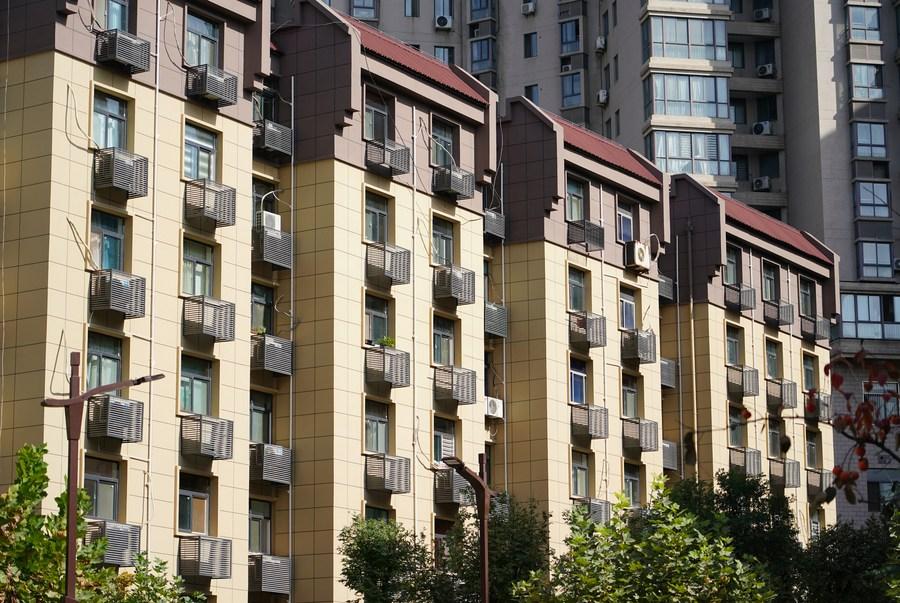
 0 Comment(s)
0 Comment(s) Print
Print E-mail chinadaily.com.cn, March 14, 2024
E-mail chinadaily.com.cn, March 14, 2024

This file photo shows a renovated residential building in a community in Yanta District of Xi'an, northwest China's Shaanxi Province. [Photo/Xinhua]
China is expected to roll out more policies to support the financing of real estate developers while improving the effects of policy implementation, amid increased efforts to improve their liquidity, thereby boosting the healthy development of the real estate industry, experts said on Wednesday.
They made the remarks as the share prices of Chinese property developer China Vanke Co declined 3.1 percent on the Shenzhen bourse and 3.49 percent on the Hong Kong bourse at the close of trading on Wednesday.
The slump in Vanke's stocks came after rating agency Moody's Ratings on Monday downgraded the developer's credit rating from Baa3 to Ba1, junk territory.
Experts said they believe China will continue to defuse property sector risks in a steady and orderly manner with market-oriented measures, after the authorities recently issued a series of policies to support real estate in terms of both supply and demand.
"China's housing market is expected to end its three-year downturn and gradually pick up in the second half of this year, with real estate risks and their spillover effects effectively controlled," said Wang Qing, chief macroeconomic analyst at Golden Credit Rating International.
Wang added that ample policy space remains for China to reduce home purchase restrictions and lower mortgage rates.
"The country will likely not only continue to cut the over-five-year loan prime rate, a benchmark interest rate commercial banks use for long-term lending, but also lower the floor on mortgage rates for first-time and second-time homebuyers," he said, adding that this will be a key move in terms of improving market confidence and ensuring the soft landing of the property market.
China's central bank lowered the five-year loan prime rate by 25 basis points to 3.95 percent on Feb 20, the biggest cut in recent years. For most homebuyers who have a long-term mortgage, the LPR cut will directly reduce their repayment costs.
Together with the accelerated deployment of the coordination mechanism for urban real estate financing, the financial situation of housing companies, especially private ones, will be greatly improved in the short term and their timely delivery of property projects can be further ensured, Wang said.
According to the Ministry of Housing and Urban-Rural Development, a total of 276 cities in 31 provincial-level regions across China had established real estate financing coordination mechanisms as of the end of last month. In addition, the number of property projects that are eligible for financing support had reached about 6,000, the ministry said.
Wang Xingping, senior analyst of corporates at Fitch Bohua, said that financing support from the policy side is relatively strong.
However, actual execution of policies is not up to the mark, and the key to resolving financing difficulties still lies in the effective implementation of related policies, she said.
As for Vanke, some Chinese media have reported market speculation that a group of commercial banks are raising money in loans to assist its repayment of maturing bonds. Vanke, however, did not comment on the reports.
Lou Feipeng, a researcher at the Postal Savings Bank of China, said that strong policy support in terms of developers' financing will help reduce the liquidity stress on them.
In addition, Vanke has optimized its regional and management structures to enhance operational efficiency, and it successfully repaid a substantial debt as scheduled on Monday. That will help alleviate market concerns about its liquidity and boost investor confidence, Lou said.